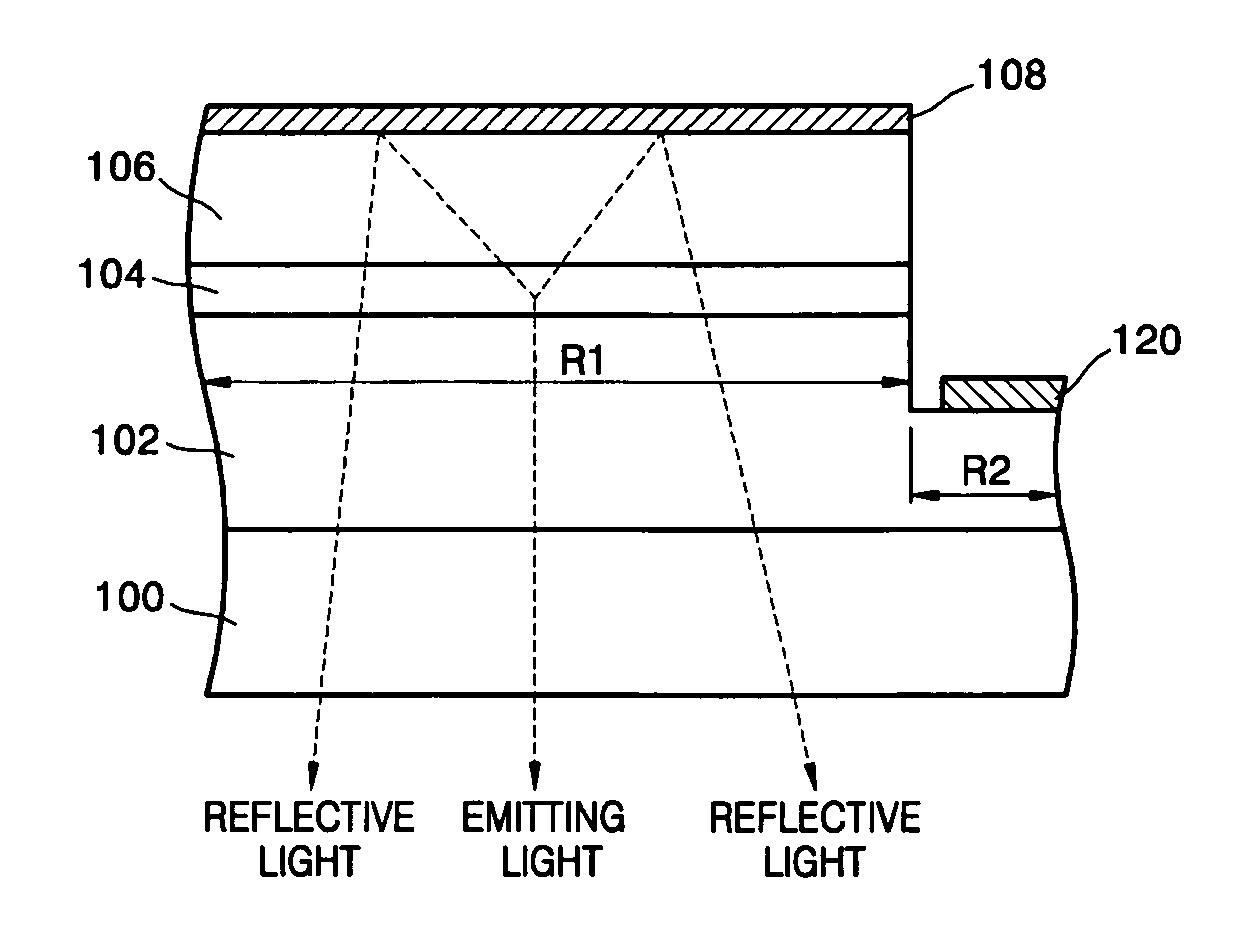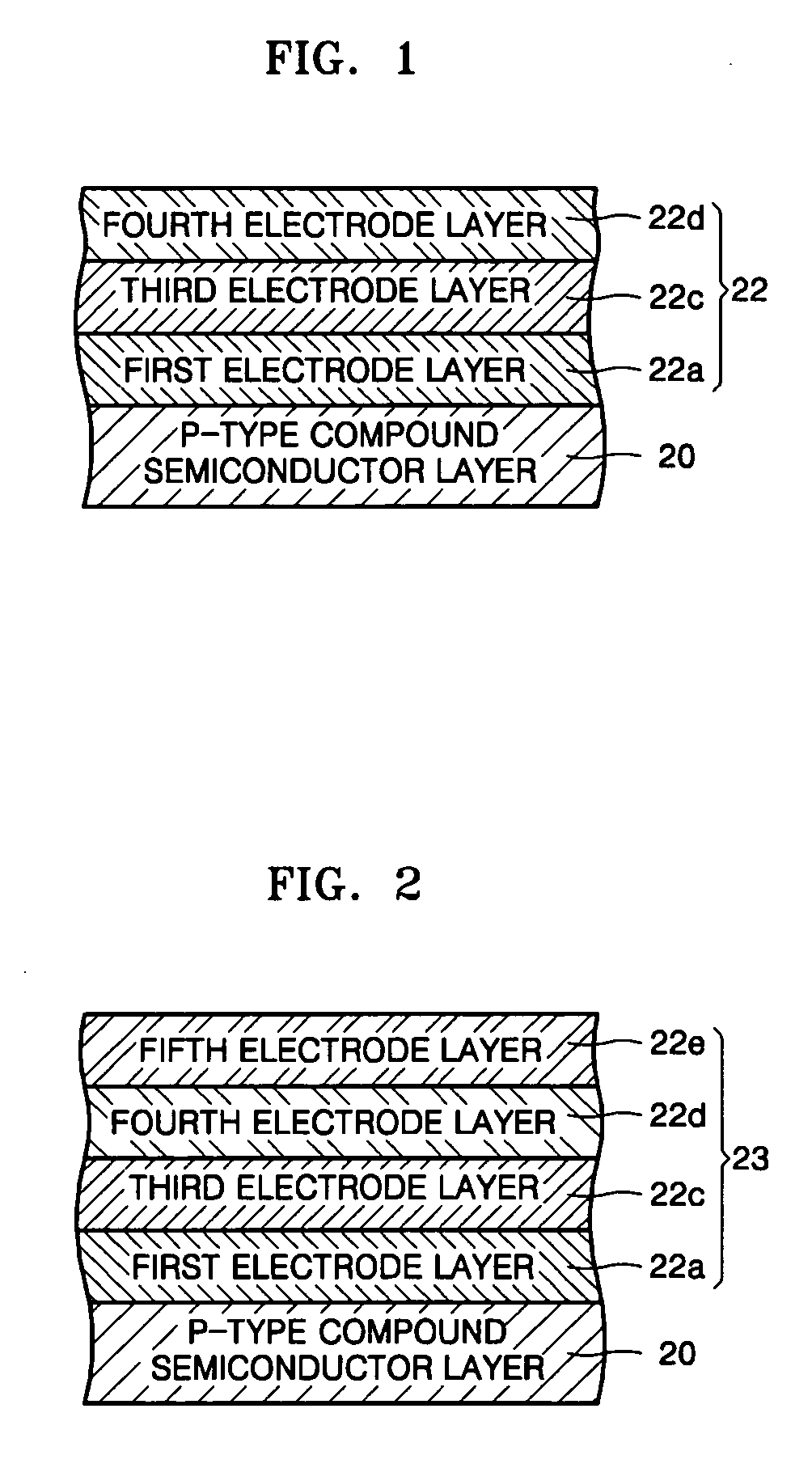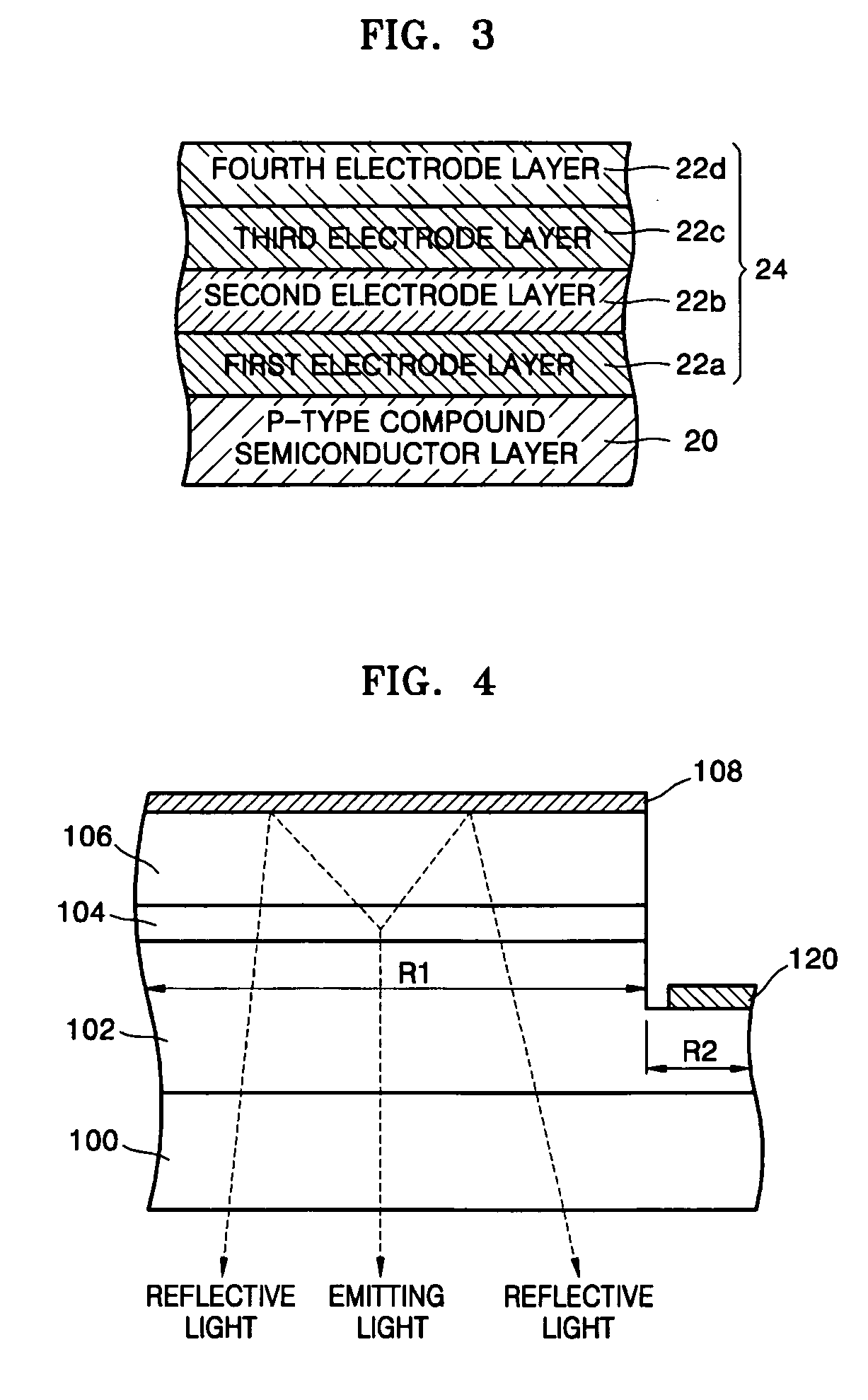Reflective electrode and compound semiconductor light emitting device including the same
a light-emitting device and reflective electrode technology, applied in semiconductor devices, semiconductor lasers, semiconductor lasers, etc., can solve the problems of unstable characteristic of fcled, low light utilization efficiency of p-type electrodes, short life of fcled to which reflective electrodes are applied, etc., to achieve superior ohmic contact characteristics, low light absorption, and high light transmittance
- Summary
- Abstract
- Description
- Claims
- Application Information
AI Technical Summary
Benefits of technology
Problems solved by technology
Method used
Image
Examples
first embodiment
[0027]FIG. 1 is a cross-sectional view illustrating a reflective electrode according to the present invention.
[0028] Referring to FIG. 1, a reflective electrode 22 may be formed on a p-type compound semiconductor layer 20. The reflective electrode 22 according to a first embodiment of the present invention may include sequentially formed a first electrode layer 22a, a third electrode layer 22c and a fourth electrode layer 22d on the p-type compound semiconductor layer 20.
[0029] The first electrode layer 22a may form an ohmic contact with the p-type compound semiconductor layer 20. The first electrode layer 22a may be formed one of Ag and Ag alloy with a thickness of about 0.1 to about 500 nm. Here, the Ag alloy may include at least one material selected from the group consisting of Mg, Zn, Sc, Hf, Zr, Te, Se, Ta, W, Nb, Cu, Si, Ni, Co, Mo, Cr, Mn, Hg, Pr and La.
[0030] The aforementioned Ag and the alloy metal elements may increase the characteristic of ohmic contact of the first e...
second embodiment
[0038]FIG. 2 is a cross-sectional view illustrating a reflective electrode according to the present invention.
[0039] In the second embodiment of the present invention, mainly the differences from the first embodiment will be described. Like reference numerals refer to like elements in the drawings.
[0040] Referring to FIG. 2, a reflective electrode 23 according to the second embodiment of the present invention may further comprise a fifth electrode layer 22e on the fourth electrode layer 22d of FIG. 1.
[0041] The fifth electrode layer 22e may be formed of a material selected from the group consisting of Cu, Cu / Ru(Cu layer / Ru layer), Cu / Ir(Cu layer / Ir layer), Cu-alloy, Cu-alloy / Ru(Cu-alloy layer / Ru layer) and Cu-alloy / Ir(Cu-alloy layer / Ir layer) with a thickness of about 1 to about 500 nm. The Cu-alloy denotes all alloy materials that include Cu.
[0042] The fifth electrode layer 22e can act as an agglomeration preventing layer for preventing the agglomeration of metal elements on a s...
third embodiment
[0047]FIG. 3 is a cross-sectional view illustrating a reflective electrode according to the present invention.
[0048] In the third embodiment of the present invention, mainly the differences from the first embodiment will be described. Like reference numerals refer to like elements in the drawings.
[0049] Referring to FIG. 2, a reflective electrode 24 according to the third embodiment of the present invention further comprises a second electrode layer 22b between the first electrode layer 22a and the third electrode layer 22c in the reflective electrode 22 of FIG. 1.
[0050] The second electrode layer 22b may be formed of Ni or Ni-alloy with a thickness of about 0.1 to about 500 nm.
[0051] The electric conductivity of the reflective electrode 24 may be increased by further including the second electrode layer 22b in the reflective electrode 24.
[0052] The second electrode layer 22b can be formed by an electron beam; an e-beam and thermal evaporator; physical vapor deposition (PVD); ch...
PUM
 Login to View More
Login to View More Abstract
Description
Claims
Application Information
 Login to View More
Login to View More - R&D
- Intellectual Property
- Life Sciences
- Materials
- Tech Scout
- Unparalleled Data Quality
- Higher Quality Content
- 60% Fewer Hallucinations
Browse by: Latest US Patents, China's latest patents, Technical Efficacy Thesaurus, Application Domain, Technology Topic, Popular Technical Reports.
© 2025 PatSnap. All rights reserved.Legal|Privacy policy|Modern Slavery Act Transparency Statement|Sitemap|About US| Contact US: help@patsnap.com



